Generator Oil Selection: What Kinds Of Oil Do they Use
- By BISON
Table of Contents
Imagine this: you’re in the middle of a power outage, and your trusty generator is your only source of electricity. You go to start it up… and nothing happens. Why? Because you didn’t use the right oil. But with so many options available, how do you know which one is the best for your generator? In this article, BISON will unravel the mystery behind generator oils and guide you through choosing the right one to keep your generator running smoothly. So, let’s dive into the world of generator oils and discover what kind of oil does a generator use.
Why is it important to use the right oil in a generator?
Generator engine oil is a vital component in the proper functioning of a generator. It serves several important functions, including lubricating the engine and reducing wear and tear, cooling the engine, and helping to seal the engine’s pistons. It is essential to use the right type of oil in a generator, as using the wrong type of oil can cause serious damage to the engine.
Understanding Generator Oil Basics
Before we delve into the specifics of what kind of oil your generator needs, it’s crucial to grasp some fundamental concepts about generator oils.
Definition of Generator Oil
Generator oil, also known as engine oil, is a lubricant used in internal combustion engines. These engines are present in various equipment, including generators. The primary purpose of this oil is to reduce friction between the moving parts inside your generator’s engine, preventing wear and tear.
Importance of Viscosity in Generator Oil
Viscosity refers to the thickness or thinness of a fluid. In the context of generator oil, viscosity is a critical factor to consider. It determines how well the oil will flow at different temperatures. High-viscosity oils are thicker and flow slower, providing better protection at high temperatures. Conversely, low-viscosity oils are thinner and flow faster, making them ideal for cold conditions. Choosing an oil with the right viscosity is crucial for the optimal performance of your generator.
Role of Oil in Engine Cooling, Sealing, and Cleanliness
A generator’s engine generates a significant amount of heat. Without proper cooling, this heat can damage the engine components. That’s where the oil comes in – it absorbs the heat from the engine components, effectively cooling them down and preventing overheating.
Additionally, the oil forms a seal between the piston rings and cylinder walls in the engine, preventing the escape of combustion gases and maximizing the engine’s power.
Lastly, the oil plays a pivotal role in keeping the engine clean. It carries away dirt and metal particles that can accumulate in the engine, preventing them from causing damage. The oil filter then catches these particles, allowing the clean oil to return to the engine.
In the next sections, we’ll discuss the different types of oil suitable for generators and how to choose the right one for your specific model.

Types of Oils Used in Generators
The type of oil used by a generator is determined by the generator’s manufacturer and model, as well as the engine type. The majority of generators utilize either traditional or synthetic motor oil. To identify the correct oil type, see the owner’s manual for your generator. Here are the three main types of oils used in generators:
Conventional Oil
Conventional oil, also known as mineral oil, is derived directly from crude oil. It provides adequate lubrication and protection for generator engines under normal operating conditions.
Conventional oil is best used in situations where the generator isn’t heavily used or subjected to extreme temperatures.
Synthetic Oil
Synthetic oil is a high-performance oil made from man-made chemicals. It’s designed to perform well under a wider range of temperatures compared to conventional oil.
Synthetic oil is ideal for generators operating in harsh conditions, such as extreme temperatures or heavy usage. It’s also suitable for newer, high-performance models.
Semi-Synthetic Oil
Semi-synthetic oil is a blend of conventional and synthetic oil. It offers a balance between performance and cost.
Semi-synthetic oil can be used in a wide range of scenarios. It’s a good choice if you’re looking for a balance between cost and performance.
Comparison chart of the types of oils
| Type of Oil | Temperature Performance | Oxidation Resistance | Cost | Best For |
|---|---|---|---|---|
| Conventional | Low to Moderate | Moderate | Low | Less frequent use, moderate temperatures |
| Synthetic | High | High | High | Frequent use, extreme temperatures |
| Semi-Synthetic | Moderate to High | Moderate to High | Medium | Balance between cost and performance |
Factors Influencing Choice of Generator Oil
Choosing the right oil for your generator is not a one-size-fits-all situation. Various factors can influence the decision, and these should be carefully considered to ensure optimal performance and longevity of your generator.
Generator Type (Portable, Standby)
The type of generator you have can significantly impact the oil you should use:
Portable Generators: These generators are smaller and often used intermittently, typically during power outages or for outdoor activities. Conventional or semi-synthetic oils are usually adequate for these generators.
Standby Generators: These generators are larger, permanently installed, and designed to kick in automatically during power outages. They often require higher-quality oil like synthetic for better performance and longevity.
Besides, some generators have 4-stroke engines, while others have 2-stroke engines.
Climate and Operating Conditions
Consider the operating conditions of your portable generator when selecting oil.
Cold Climates: In colder temperatures, a lower viscosity oil is recommended as it flows more easily. Synthetic oil is generally better suited for cold climates due to its superior flow characteristics at low temperatures.
Hot Climates: In contrast, higher viscosity oil is suitable for hotter climates as it won’t thin out too much. Both synthetic and high-viscosity conventional oils can work well here.
Frequency of Use
How frequently you use your generator can also influence your choice of oil:
Infrequent Use: If you use your generator occasionally, conventional oil might suffice.
Frequent Use: For more regular use, especially under demanding conditions, synthetic or semi-synthetic oil would be a better choice due to their enhanced properties and longer lifespan.
Manufacturer Recommendations
Always refer to your generator’s user manual or consult the manufacturer for specific oil recommendations. Manufacturers often provide guidelines on the most suitable oil types, viscosities, and change intervals for their models.
Remember, choosing the right oil won’t just keep your generator running smoothly—it’ll also extend its life, saving you money in the long run.
additional tips
Here are some additional tips for choosing and using oil in a generator:
- Always use the oil type that is recommended by the generator’s manufacturer.
- Do not mix different types of oil together, it can cause problems with the lubrication of the engine.
- Change the oil more frequently if the generator is used in dusty or dirty conditions.
- Dispose of used oil properly.
- Oil change intervals: The oil change interval for a generator will vary depending on the manufacturer’s recommendations. However, it is generally recommended to change the oil every 100 hours of operation.
- The type of oil that you use in your generator is important for its proper operation and longevity.
- Choose an oil that is compatible with your generator’s engine and operating conditions.
- Use a high-quality oil filter. A high-quality oil filter can help to remove contaminants and debris from the oil, which can help to extend the life of the engine.

call to action
Choosing a quality oil for your BISON generator is not just an expense, but a wise decision that will ensure smooth operation and longevity of your equipment. Remember, your generator runs smoothly every moment during a power outage thanks to the high-quality oil that lubricates its engine.
Have more questions about BISON generator maintenance and best practices? Please feel free to contact us. Our team of experts is ready to provide you with the information and guidance you need. Contact us today and let us make sure your generator is always in top-notch condition, ready to serve you when you need it most.
Most Popular Posts
QUESTIONS?
CONTACT US TODAY.
buy?
Related Posts
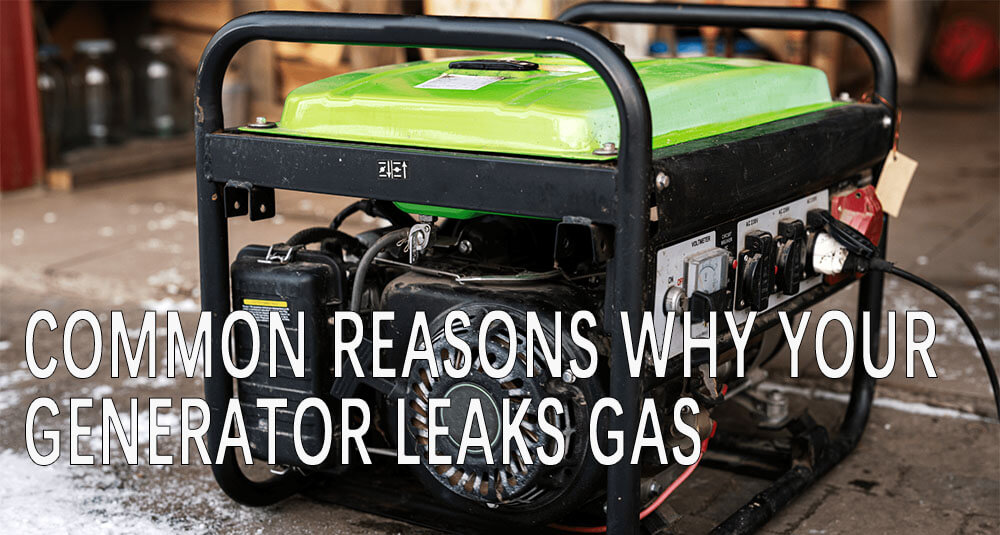
Common reasons why your generator leaks gasoline
In this guide, BISON covers common causes of gasoline leaks, warning signs to watch for, and how to fix the issue.
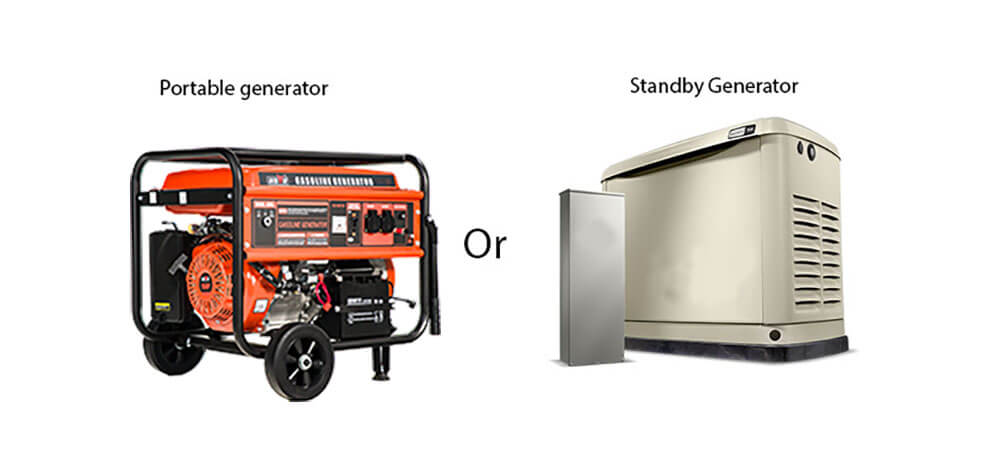
portable or standby generators: which one fits your needs?
This article by BISON breaks down the differences between portable and standby generators. By the end, you’ll find which one fits your needs best.

how to parallel generators: A comprehensive guide
BISON will explain what parallel generators mean and how they work together as a system. We will also focus on the advantages and reliability.

how long do generators run: what you need to know
BISON will dive into everything you need to know about how long a generator runs, helping you choose between generators with different run times.
Related Products
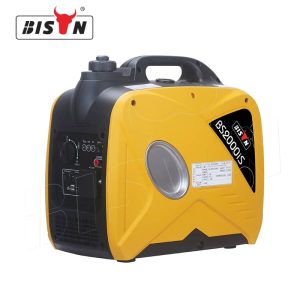
silent portable inverter generator
BISON BS2000ig silent portable inverter generator is the perfect solution for those who need a
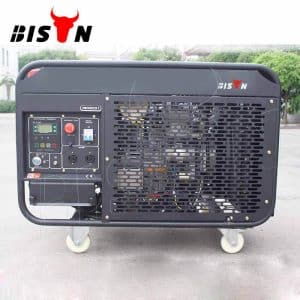
big power diesel electric generator
BISON BS9500DCE is a commercial-grade diesel electric generator that delivers big power when you need

Fuel Gasoline And Propane Powered Electric Start Generator
Switch between gasoline and propane with the simple turn of the selection dial
120/240
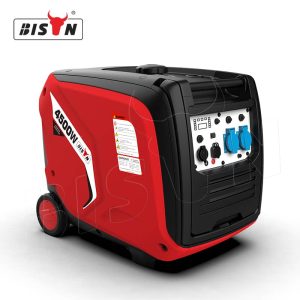
2500w digital inverter generator
The BISON BS2500I is a top-of-the-line 2500-watt digital inverter generator that delivers clean, reliable power
.png)
-qbpqbzxxvtguiuwezisu6wo6j1i29b4m1el1ir1u8o.png)

